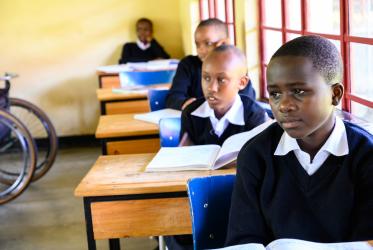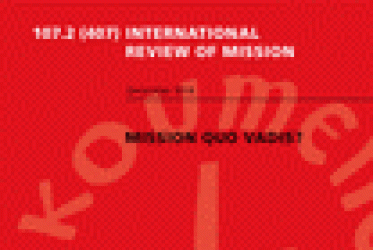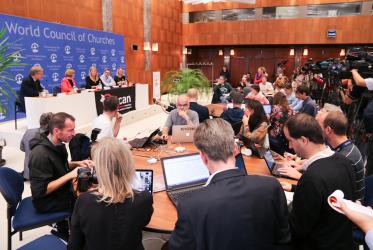Displaying 1 - 20 of 21
28 August 2019
Mission and people with disabilities
26 June 2019
New issue: International Review of Mission
14 December 2018
Konrad Raiser shares ecumenical journey of transformation
06 February 2018
Trying to do good for the world
18 December 2017
Christian and Muslim promote spiritual solidarity
14 June 2017
The work of the Spirit and discipleship in Christian mission
12 January 2017
WCC general secretary congratulates OPCW on Nobel Peace Prize
14 October 2013










